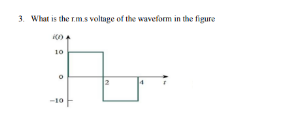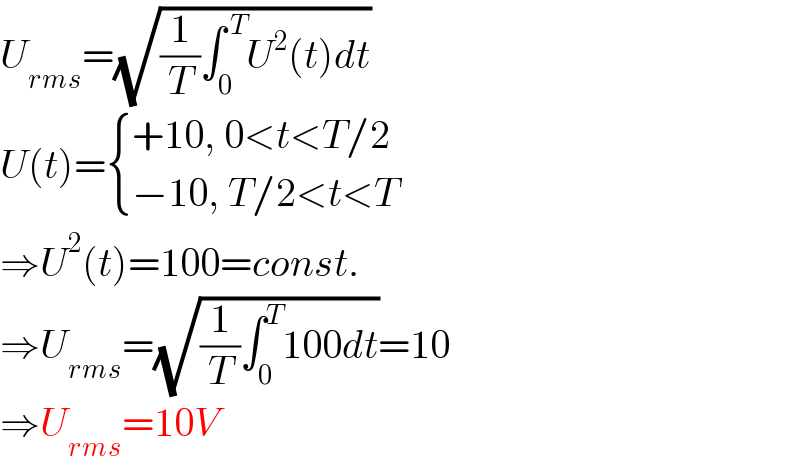Question Number 173515 by Muktarr last updated on 12/Jul/22

Answered by aleks041103 last updated on 12/Jul/22

$${U}_{{rms}} =\sqrt{\frac{\mathrm{1}}{{T}}\int_{\mathrm{0}} ^{\:{T}} {U}^{\mathrm{2}} \left({t}\right){dt}} \\ $$$${U}\left({t}\right)=\begin{cases}{+\mathrm{10},\:\mathrm{0}<{t}<{T}/\mathrm{2}}\\{−\mathrm{10},\:{T}/\mathrm{2}<{t}<{T}}\end{cases} \\ $$$$\Rightarrow{U}^{\mathrm{2}} \left({t}\right)=\mathrm{100}={const}. \\ $$$$\Rightarrow{U}_{{rms}} =\sqrt{\frac{\mathrm{1}}{{T}}\int_{\mathrm{0}} ^{{T}} \mathrm{100}{dt}}=\mathrm{10} \\ $$$$\Rightarrow{U}_{{rms}} =\mathrm{10}{V} \\ $$
Commented by Tawa11 last updated on 13/Jul/22

$$\mathrm{Great}\:\mathrm{sir}. \\ $$
